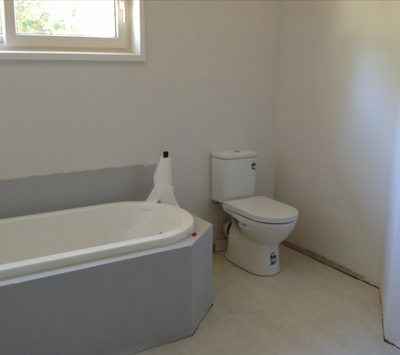
‘Prime cost’ is a set budget for an item or set of items that need to be bought for your building or reno project – and it’s often the cause of grief and misunderstandings with builders.

If you want a particular standard of fittings (or specific brands or models), make sure your contract is very clear about that.
There are few different things that can cause costs to blow out on building or renovation project – but two of the most common culprits are prime cost (PC) and provisional sum (PS) allocations.
If you’re not familiar with those terms, they’re two things that represent parts of your building contract where an estimate or a best guess is made for the cost of products or work to be done when the exact cost isn’t available. Sadly, even if everyone has the best of intentions, the final figures can sometimes be considerably different to what’s been initially agreed upon, leading to bill shock.
What is prime cost?
‘Prime cost’ refers to a set budget allocated for an item or set of items that need to be bought for your building or renovation project. Taps are a great example – if you haven’t specified a particular brand, model and style of taps, or if it’s impossible to get an idea of the price for what you want, then your builder is likely to allocate a certain amount of dollars for taps rather than specifying exact costs.
Contractors are obliged to make reasonable representations in terms of what PC items will cost – and include a separate schedule in the contract that outlines how many of a particular item will be purchased, what they’ll cost the contractor and how much of a margin the builder will add onto the final price (about 20% is considered reasonable).
If nothing’s been specified, builders will often set a fairly modest budget for these items, in part because they don’t want to seem like they’re making extravagant decisions on your behalf. The prime cost budget that’s allocated will normally be enough for fairly simple fittings (e.g. no-frills taps, toilets, sinks, light switches etc.).
What’ll often happen mid-way through the build is that you’ll realise that the prime cost budget’s nowhere near enough money for the curvy brand-name European taps you really want – or in some cases, even for anything you particularly like.
If you’re not prepared, there’s every chance you’ll be paying more than you intended for prime cost items.
How to avoid prime cost trouble
The best way to avoid being hurt by mismatched expectations over prime cost items is to plan carefully, and make sure your contract’s as detailed and precise as possible. Do your absolute best to specify the exact brands, model numbers and colours you want in the contract before you sign anything – and make sure that prices are quoted clearly and fairly.
Where there’s a price difference between an allocated budget for prime cost and the final cost (regardless of whether it’s more or less than what’s on the contract), the difference will be charged as an adjustment to the prime cost in a progress claim, rather than a variation.

Excavations are a common cause of provisional sum trouble.
What are provisional sums?
The term ‘provisional sum’ refers to an estimate in your builder’s contract for what it’ll cost do a particular part of your building or renovation job. Provisional sums are estimates that are provided where the builder can’t give an exact figure for the work required, after having made reasonable enquiries into what it’ll actually cost.
One example might be for excavation. Even with a soil test, it may be difficult to know exactly what’s under the ground, and therefore difficult to pinpoint the cost and effort required. The difference in this particular example could be a matter of many thousands of dollars either way – particularly if it requires, for example, revisions to the kind of slab you need to build.
Provisional sums aren’t always easy to plan for, in that the actual scope of work’s often inherently unknowable. Talk to your builder about the inclusion of provisional sums in your contract, and make sure you have a very clear picture of all of the potential costs, risks and possible outcomes associated with any provisional sums – as well as what your options are to help reduce uncertainty.





